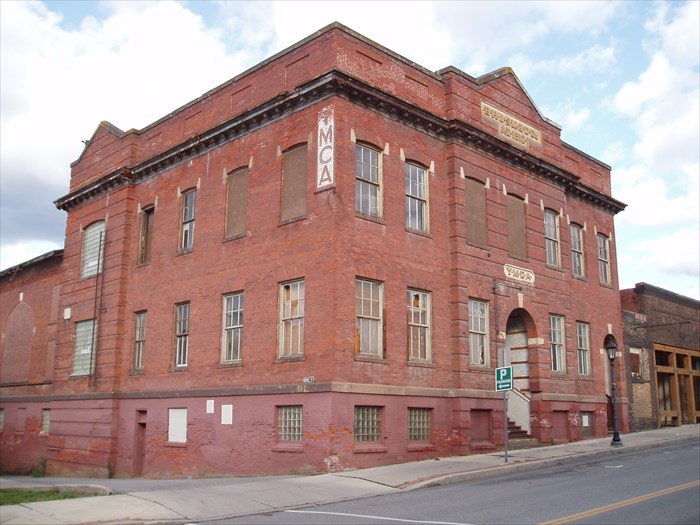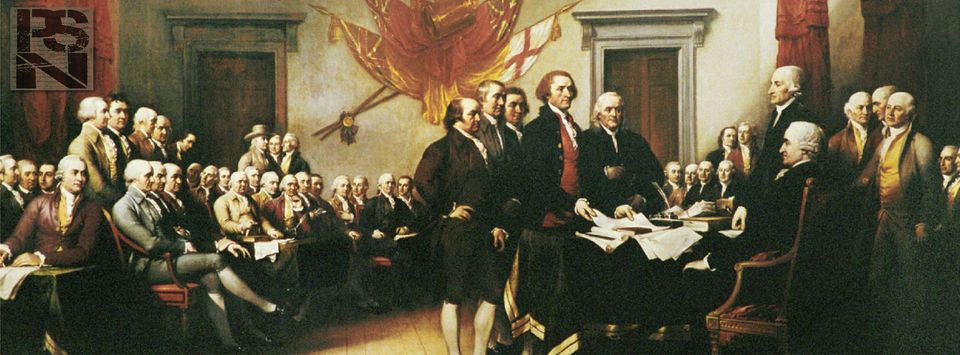- Details
- Written by Coach Shawn
- Category: Self Evident Truths
- Hits: 266

The Kellogg, Idaho YMCA, where I learned to take a punch - to get knocked down without breaking down. They say that the sense of smell has such a significant impact on memory that certain odors can bring back vivid images of past experiences. This certainly applies to me when it comes to this building.
I was young but what I experienced during the brief period I spent in this building left an indelible mark on my psyche. Certain sounds and odors have often taken me back to those moments spent here. These memories are punctuated with the image, sound and smell of an old worn out medicine ball - the heavy worn out leather type that boxers toss at each other's abs.
Much of my time here was spent acting in the role of a live punching bag for my older cousins. It seems my coach's idea of good training was to stick 'em in the ring and let 'em figure it out.
My cousins seemed to agree and demonstrated their support of this training method on me regularly. It hurt, a lot, but I was determined not to let it show.
The YMCA was closed in the late 1970's before I really learned to hit back. The building, built in 1910, has been for sale now for many years. My home town has turned into a veritable ghost town so I have my doubts it would ever happen but I hope, one day, someone will buy it and make something of it.
- Details
- Written by Coach Shawn
- Category: Self Evident Truths
- Hits: 294
As we approach the Marine Corps birthday and, following that, veterans day I find myself thinking a lot about those I have served with as well as the many combat veterans out there struggling to make sense of civilian life. I’m speaking specifically about men who have served in the combat arms. All service is valuable and should be admired and appreciated but the combat arms are where we find most of our struggling vets.
It’s taken me a few years to figure this out but I would like to share with my friends who haven’t served in the combat arms one of the biggest things combat veterans struggle with. We all know there are many vets out there who struggle. It is said that 22 vets commit suicide each day but the truth is that number, although a great way to raise awareness, is a quite high.
The first thing I would like non-veterans to know (and I know I speak for many of my brothers in this) is that vets are not the depressed, helpless mess they are often being portrayed as. They are tough as nails and able to rise up to just about any challenge, they will not back down from a struggle and they can be relied upon to have your back when you truly need it.
That is where the struggle lies. I’ll speak to the Marine Corps Infantry since that is where my experience is. As a young man fresh out of high school (still a boy really) I was tossed into a unit filled with other boys from around the world (yes we even had some foreign nationals from places such as the Philippines, Haiti, even Laos). Many of us had never ventured beyond our homes and had very little interaction with people beyond our culture.
A Marine Infantry unit is a pressure cooker. Take young men from all walks of life, stick them in a large room with nothing but a foot locker or wall locker between them. Make them share a large community shower. Make them eat together, sleep together, shower together, study together, exercise together - literally do everything together. Apply just the right amount of heat and pressure and you come out with a highly functioning precision killing machine.
It’s a bit messy at times. There will be arguments, even fights. Little went unsaid - absolute brutal honesty is the order of the day. Gossip and rumors are crushed in an instant. In the end, regardless of differences and conflict, you work together to accomplish the mission - the mission always comes first.
There were Marines I never got along with - we never had a kind word for each other but, when it came down to it, I had their back and they had mine. If they truly needed me for anything, I would be there in an instant and the inverse was true. If an outsider had something to say, we would defend our brothers in arms even if it meant getting our ass whooped. No one may speak ill of a Marine except another Marine.
All of this intensifies when the bullets start flying. It may seem a bit cliche but what keeps you going in the face of death is the fear of letting your brothers down. It’s one of the strongest bonds that can be forged among men.
With all of this in mind imagine leaving this brotherhood and stepping out into the world, suddenly alone. I vividly remember the day I left the Corps. I stepped out of the Battalion headquarters in Quantico onto the sidewalk - alone for the first time since leaving High School. It was one of the most uncomfortable feelings I have ever felt. I truly felt as if I were abandoning my brothers and leaving them behind. I looked forward to my life ahead with my new wife but I felt a strong sense of remorse for leaving the Corps.
I have been very fortunate in my civilian career in that I have had the opportunity to work with fine men and women in law enforcement and intelligence. This helped me adjust a great deal and, over time, I have learned to dull my edge just enough to fit in. This brings me to the struggle many combat veterans face. Fitting in with civilians who don’t understand them.
I have been out of the service now for 24 years and I still struggle with fitting in with civilians and I know many of my brothers are struggling as well. In civilian life people are not brutally honest and few can handle brutal honesty, Most do not have your back when the going gets tough and very few will stand up for you when others speak ill of you. In civilian life self interest is naturally placed above the mission and the team. All of this makes if very difficult for the combat arms veteran to fit in. It can lead him to feel a strong sense of solitude and being misunderstood. One reason many want to return to service is to once again be among those who understand him.
What does this mean to those in a veterans life? I started by pointing out that these men are not the emotional wreck they are often portrayed to be. Always remember that. The combat vet does not need your pity or sympathy - he needs your respect and loyalty. That is what he is missing.
A combat veteran needs to be challenged - remember he is used to operating in a pressure cooker. Often, the combat veteran is struggling to find a place in the world that makes sense. If you employ one, challenge him - apply a healthy amount of pressure and he will often excel.
Understand that certain things will bother a combat arms veteran deep down. Lack of honesty, integrity and loyalty from friends and coworkers. Placing self interest above the task at hand, failure to have each others back - all things that may be no big deal to average civilians will eat away at his spirit. If you have a combat veteran as a friend or colleague, be true to him. Demonstrate loyalty and honesty with him, stand up for him when others speak ill of him and he will literally give his life for you if necessary. You will find his loyalty to you to be unwavering.
- Details
- Written by Coach Shawn
- Category: Self Evident Truths
- Hits: 297
I have always been a very spiritual person. I was once told by a pastor that I could either be a an of the world or a man of God but not both. I was young and did not understand the full meaning of what he was saying.
As I prepared to travel to the Middle-East a life-long friend gave me a beautiful little Greek Orthodox Bible to carry with me. I carried it everywhere I went and looked for passages that spoke of the land I was in. I still have that Bible, 27 years later, sitting on my night stand.
I carried that Bible with me as I stood on the hill overlooking the Jordan Valley where God told Moses he would not enter with his people. The ruins of an ancient Byzantine church mark the location. I carried it throughout Greece and Rome and attempted to trace the travels of the Apostle Paul.
Most memorable were the several occasions I took it with me to the tiny little underground chapel at the end of the Street Called Straight, where, as recored in Acts 9:11 God told St. Ananias to go and seek Saul of the House of Judas (the Apostle Paul). St. Ananias would baptize Paul and this chapel would be named in his honor - The House of St. Ananias. There is some debate of the date of it’s origin but scholars put it as early as the first century AD.
This was the most peaceful place in an very noisy, busy city. Where Straight Street narrowed you come to a small gate where a lone monk would respond to the ring of a tiny bell to let you through the gate before walking you through a little courtyard to a set of ancient stone stairs leading underground.
The chapel is quiet, cool and tranquil. I would spend a good deal of time there each visit contemplating religion and the nature of the people who met in this little chapel. I tried to imagine those who came here in the first century - the very origins of the Christian Church. They would have held congregation without the benefit of the Bible and much of the ritual, ceremony and tradition we have grown accustom to. Were there songs to sing? How did they pray? It would have been fascinating to be a fly on the wall during one such congregation.
It might surprise some to hear that I left the Holy Land more spiritual but less Christian than when I went. Something about living and working among Orthodox Christians, Catholics, Jews, Muslims, even Buddhists left me more agnostic. I had to ask myself if I were only Christian because I was born in a Christian land. The honest answer was, yes. I had become a man of the world after all; the pastor was right.

